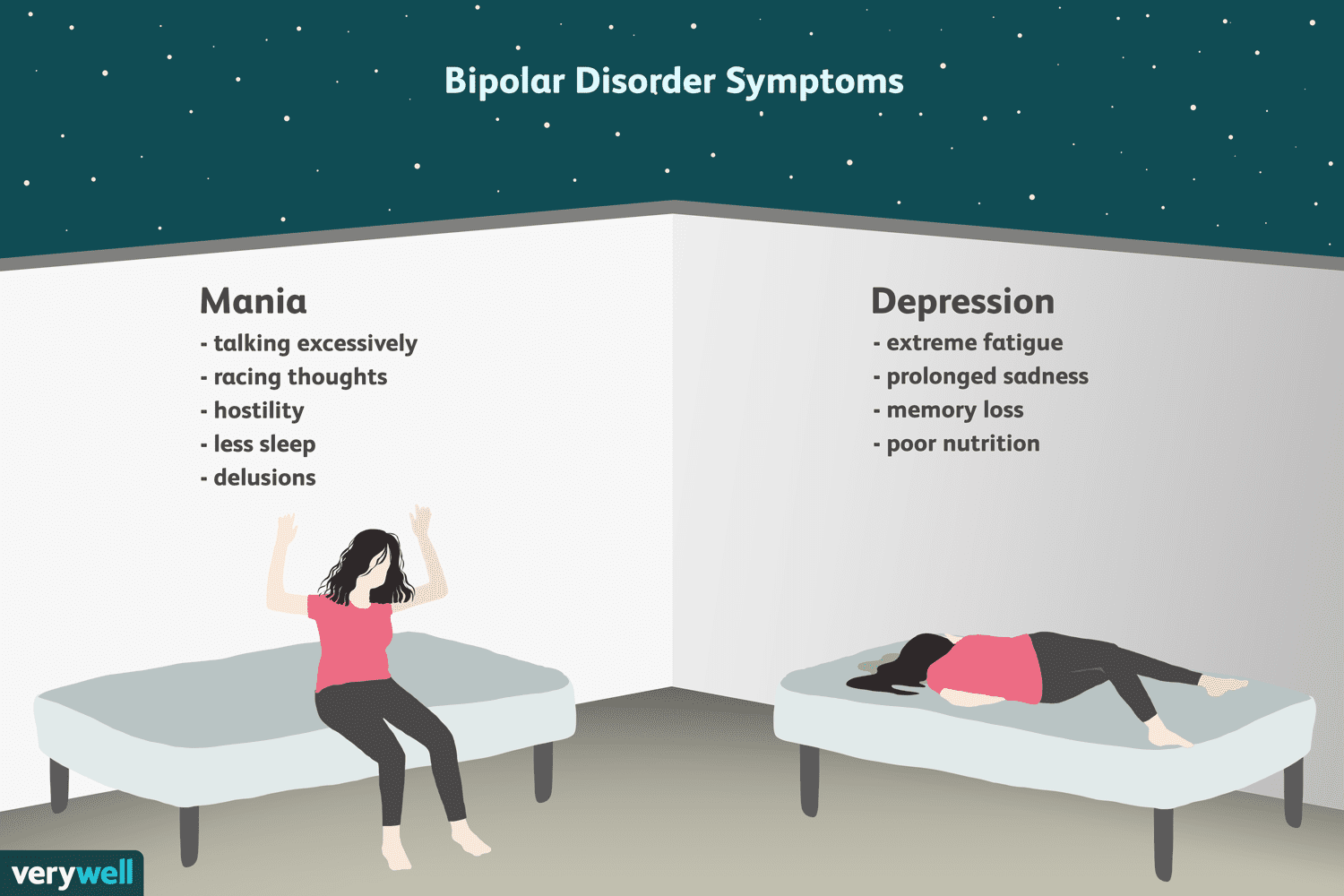TNews - Bipolar disorder is a complex mental health condition characterized by extreme mood swings that can significantly impact an individual's life. These mood swings fluctuate between two distinct poles: manic episodes and depressive episodes.
Manic Episodes:
During manic episodes, individuals experience heightened emotions, often to an extreme degree. They may feel an overwhelming sense of joy or euphoria that is far beyond what is considered normal. This elevated mood is accompanied by a surge in energy levels, making individuals feel highly motivated and confident. However, these episodes also bring with them a range of challenging symptoms, such as difficulty sleeping or insomnia, an inflated sense of self-importance, increased activity levels, rapid and constant speech, and engaging in impulsive and risky behaviors, like excessive spending.
Depressive Episodes:
Conversely, depressive episodes are marked by intense feelings of sadness, hopelessness, and worthlessness. Individuals with bipolar disorder often lose interest in activities they once enjoyed and struggle to find pleasure in life. Changes in appetite, either leading to significant weight loss or gain, are common during these episodes. Sleep disturbances, including insomnia, further exacerbate the situation, leaving individuals fatigued and drained of energy. Concentration and decision-making become arduous tasks, and, in severe cases, thoughts of death or suicide may emerge.
Read more : The Important Role of Mangrove Forests
Bipolar disorder is not a one-size-fits-all condition; it manifests differently in each individual. However, recognizing these common symptoms can be crucial in identifying the disorder.
Types of Bipolar Disorder:
Bipolar disorder is further categorized into two primary types, which differ based on the severity and duration of manic and depressive episodes.
- Bipolar I Disorder: This type is characterized by severe manic episodes that often lead to hospitalization or significant disruption in daily life. Depressive episodes also occur, creating a cycle of intense mood swings.
- Bipolar II Disorder: In contrast, Bipolar II Disorder is marked by hypomanic episodes, which are less severe than full-blown mania, but still involve heightened energy and mood. These episodes are often shorter in duration and are followed by depressive episodes.
Understanding the Causes:
While the exact causes of bipolar disorder remain elusive, researchers believe it results from a combination of genetic, environmental, and biological factors. Genetic predisposition plays a significant role, as the disorder tends to run in families. Environmental stressors, traumatic life events, or substance abuse can also trigger episodes in susceptible individuals.
Treatment and Management:
Fortunately, bipolar disorder is manageable with the right treatment approach. This usually involves a combination of medication and therapy:
- Medications: Mood stabilizers, antipsychotic drugs, and antidepressants are commonly prescribed to help individuals stabilize their moods and manage symptoms.
- Therapy: Talk therapy, particularly cognitive-behavioral therapy (CBT), is beneficial in helping individuals understand and manage their condition. It equips them with valuable coping strategies and provides a supportive environment for discussing their experiences.
Tips for Managing Bipolar Disorder:
Managing bipolar disorder effectively involves implementing a range of lifestyle changes:
- Establishing Routine: Maintaining a regular daily schedule can provide stability and predictability, which are vital for managing mood swings.
- Healthy Eating Habits: A balanced and nutritious diet can impact both physical and mental well-being, helping individuals feel their best.
- Regular Exercise: Physical activity releases endorphins, which can boost mood and alleviate stress, making exercise an essential component of bipolar disorder management.
- Adequate Sleep: Ensuring sufficient restorative sleep is crucial for mental and physical health, as sleep disturbances can exacerbate bipolar symptoms.
- Avoiding Substance Abuse: Alcohol and illicit drugs can worsen mood swings and should be avoided, or used cautiously, by individuals with bipolar disorder.
- Building a Support System: Seeking support from friends, family, or support groups can be invaluable in navigating the challenges that bipolar disorder presents.
Recognizing the signs and symptoms of bipolar disorder, seeking professional help, and adhering to a comprehensive treatment plan can empower individuals to lead fulfilling and productive lives despite the challenges posed by this condition.

